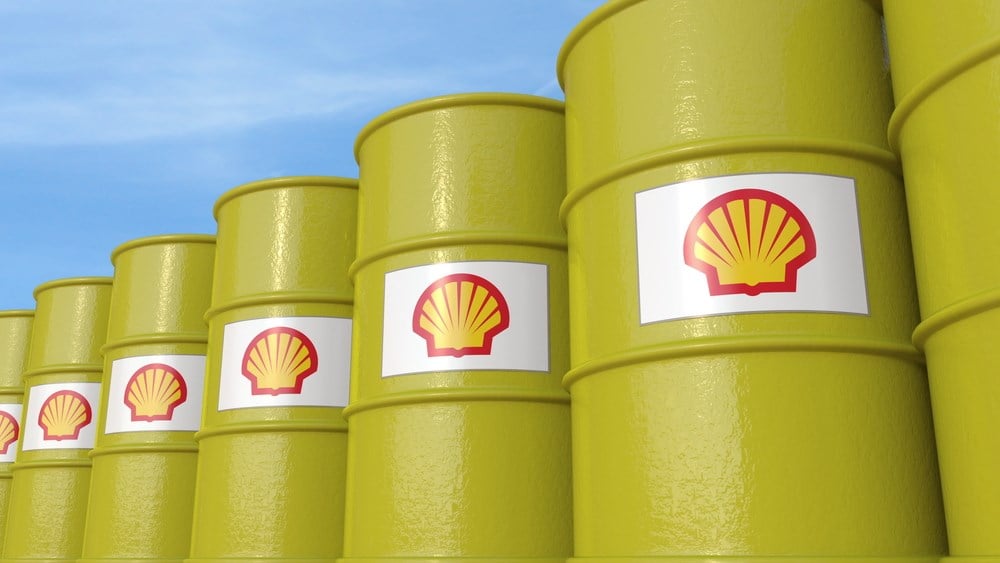
Shell plc (NYSE: SHEL) recently cleared price resistance above $63.69, trending higher in heavier-than-normal volume as the broader energy sector moves higher.
While the recent price move is encouraging, the dividend is also an attractive feature of Shell’s stock.
MarketBeat’s Shell dividend data shows a yield of 4.12%, and an annual dividend of $2.64.
U.K.-based Shell has a market capitalization of $219.66 billion. Because it’s not headquartered in the U.S., it’s not tracked by either the S&P 500 or the Energy Select Sector SPDR Fund (NYSEARCA: XLE), but those are good benchmarks, nonetheless.
Shell has returned 9.84% in the past three months and 14.72% year-to-date.
Meanwhile, the XLE ETF, comprised of large U.S.-based energy stocks, returned 12.70% in the past three months and 5.86% so far this year.
Shares Fell After Earnings
Shell stock dropped in late July after the company reported second-quarter profit that fell below Wall Street’s estimates. You can see that shortfall using MarketBeat’s Shell earnings data. The company reported a profit of $1.50 per share; analysts expected $1.59 a share. That was down from the year-earlier earnings of $3.08 a share.
Revenue came in at $74.6 billion, down 25% from the year-ago quarter.
The decreases were due to 2022’s energy price increase after the Russian invasion of Ukraine. European oil and gas companies were hit harder by the slowdown in the past year. For example, French oil-and-gas giant TotalEnergies SE (NYSE: TTE) reported a similar decline from the year earlier’s gold rush.
Lower commodity prices also put a dent in earnings, as did scheduled pre-hurricane-season maintenance at some Gulf of Mexico oil fields.
Shell CEO Wael Sawan, who took the helm in January, has prioritized boosting the stock’s valuation. When the company reported earnings in July, it announced a $3 billion share buyback program slated to run through late October. Those buybacks may be reflected in the stock’s recent price increases.
The company also announced a 15% dividend increase.
Assured Continuity of Dividends
At an investors’ conference in June, the company assured investors it would increase those shareholder payouts while maintaining steady levels of oil output until 2030. To reassure investors of the company’s ability to meet that commitment, Shell said it was prepared to cash flow those payments as long as oil remains above $40 per barrel for dividends and $50 per barrel for share repurchases.
Dividends in the oil industry can be uneven. The industry is known for its cyclicality, with factors like oil prices, supply and demand, geopolitical events, and economic conditions affecting oil companies’ profitability.
During periods of high oil prices and robust profits, oil companies may pay generous dividends to shareholders. However, during downturns or when oil prices are low, that can change.
That means it’s not unusual to see dividend cuts within the industry.
For example, you won’t find any oil-and-gas companies on MarketBeat’s Dividend Kings list of companies that consecutively increased their dividend payments for at least 50 years.
Big Oil Companies Among Dividend Achievers
The list of Dividend Achievers, comprised of stocks that increased their dividend payments for at least the last 10 consecutive years, includes sector heavyweights Chevron Corp. (NYSE: CVX) and Exxon Mobil Corp. (NYSE: XOM).
MarketBeat’s Shell analyst ratings show a consensus view of “hold” with a price target of $67, an upside of 4.57%.
In an August report, Bank of America analysts said their price target of $77 is based on the bank’s methodology of breaking Shell up into its various business units. The bank’s long-term Brent oil price assumption is $70 per barrel. Brent closed at $91.96 per barrel on September 12.
Bank of America added that risks include changes in oil and gas prices, changes in the political and regulatory environment, currency swings and refining margins, among others.













